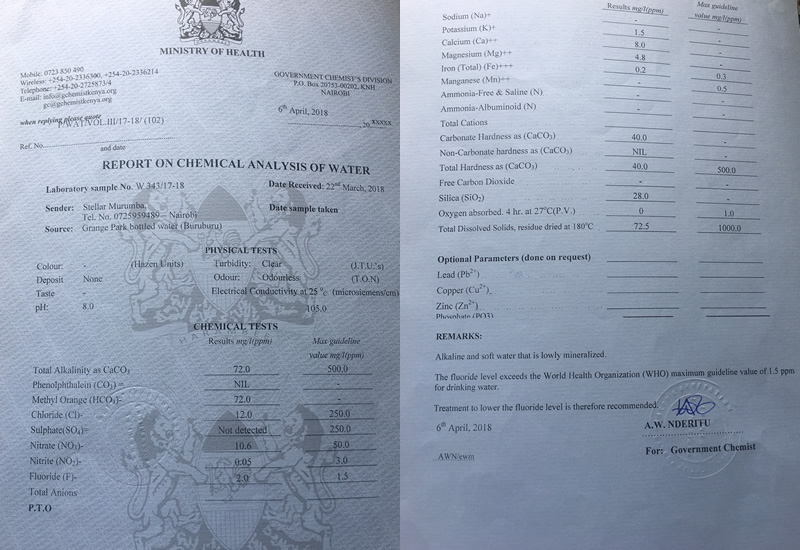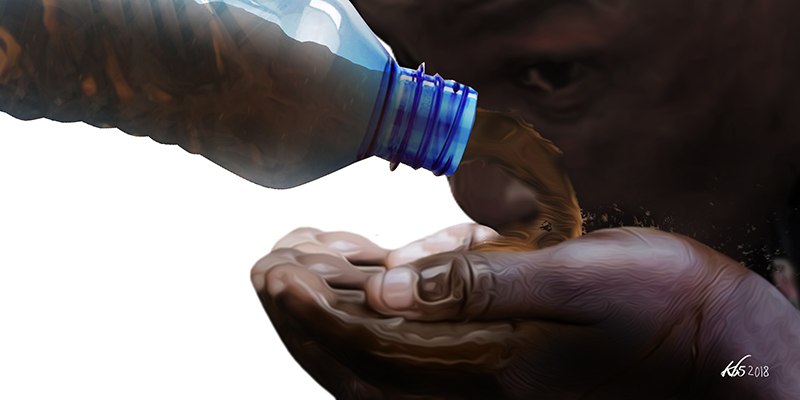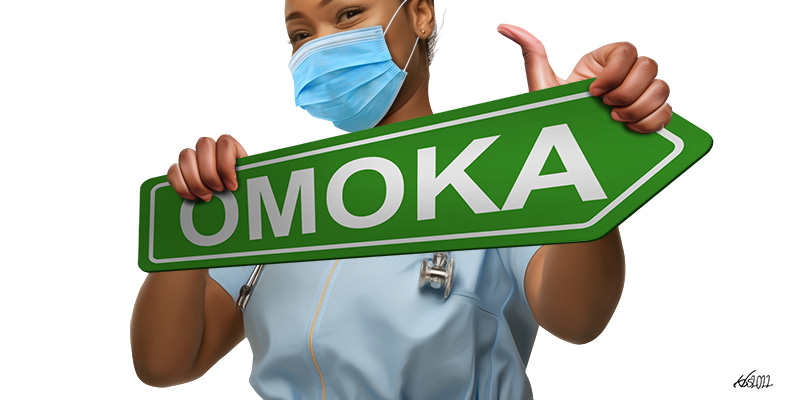On most of Kenya’s streets and roads, young men and women hawk bottles of water to passing motorists. It is impossible to walk through any urban area without coming across a bottled water vendor. The concept of bottled water being “better” and “safer” than tap water has become ingrained in people’s minds. From being a status symbol of sorts, bottled water is now a basic necessity in many households. And with cholera and other water-borne diseases becoming the norm, it is no wonder that the sale of bottled water has been growing by leaps and bounds over the years.
But just what is in that bottle of water you are taking? What risks are you and your family taking when you opt to drink bottled water rather than tap water?
Medics have raised a red flag over the increased health risks, especially on mental health, posed by high levels of chemicals, such as fluoride, in drinking water.
We went ahead to test samples of bottled water collected from different areas of Nairobi – Eastleigh and BuruBuru estates and the Central Business District. What we found was shocking. At least four out of ten samples of bottled drinking were unfit for human consumption.
The samples of bottled included top brands, such as Coca Cola’s Dasani, Grange Park, Mt. Kenya and Avodale, which were bought from supermarkets in these areas and were analysed at the Government Chemist in April.
Out of the ten samples submitted for chemical analysis to the Government Chemist, four turned out to be unfit for human consumption.
The analysis revealed that the sampled water had high levels of fluoride, in excess of the World Health Organisation (WHO) guideline limits of 0.3 ppm for drinking water. They also had high levels of iron, and were acidic.
“There is an increased concern posed by fluorosis, for instance, especially on mental health due to stigmatisation,” said Consultant Family Physician at Aga Khan University Hospital, Dr Jacob Shabani in an interview. “Increased use of borehole water and bottled water from underground sources for which adequate chemical composition has not been adhered to is showing increased risk of poor bone health with increased fracture risk and poor teeth.”
Health risks
Out of the ten samples submitted for chemical analysis to the Government Chemist, four turned out to be unfit for human consumption. Dasani bottled water sampled from Buruburu, for instance, was found to have iron levels that exceeded the WHO guideline limits of 0.3 ppm for drinking water. Interestingly, two other samples of the same brand sampled from the Nairobi CBD and Eastleigh were found to be chemically fit for human consumption, pointing to a possible lack of adherence to standards by the manufacturer or a laxity of some sort by the industry regulator, the Kenya Bureau of Standards (KEBS), in doing random testing to ensure standards are maintained across all production cycles.

A sample of Grange Park bottled water from Buruburu was also found to have fluoride levels exceeding the WHO maximum guideline value of 1.5ppm for drinking water. Another sample of Mt. Kenya Bottled water from Buruburu was found to have exceeding fluoride levels over the WHO maximum guideline value of 1.5ppm for drinking water.

“Dasani bottled water (sampled from Buruburu) had levels of iron exceeding the WHO guideline limits of 0.3 ppm for drinking water. Treatment to lower the level of iron is recommended,” said the report signed by Senior Principal Chemist at Government Chemist, Anne Nderitu.
“Grange Park bottled water and Mt. Kenya bottled water sampled from Buruburu had their fluoride levels exceed the WHO maximum guideline value of 1.5 ppm for drinking water. Treatment to lower the fluoride level is therefore recommended.”

Excess fluoride in drinking water can cause dental or skeletal fluorosis. Dental fluorosis is the snow capping (when mild) or browning (when severe) of teeth. It has no cure and damaged teeth cannot be restored. These teeth are prone to tooth decay, are weak and easily chip off.
Skeletal fluorosis, which in its acute stage causes total immobility, develops slowly and can take up to 30 years, leading to bones that develop outgrowths, are deformed and prone to fractures.
Studies in Kenya show that children with dental fluorosis face societal stigma. It makes them self-conscious and uncomfortable, thus denying them a chance to socialise freely. They also face societal stigma, including being shunned as future marriage partners. They have reduced chances of securing employment and are in fact ineligible to join the disciplined forces or to pursue careers that place a premium on appearance.
A Kenya Society for Fluoride Research (KSFR) report shows that over 19 million Kenyans suffer from fluorosis. A 2013 survey by KSFR showed that more than 80 per cent of potential armed forces recruits in Central Kenya were not accepted due to the bad condition of their teeth, which was attributable to fluoride.
“The WHO, however, recommends safe fluoride levels at less than 1.5 milligrams per litre (0.5 mg/litre) as they are protective of the enamel and hence the reason for fluoridation of toothpastes,” said Dr Shabani. “Children are however more susceptible to fluorides and mild dental fluorosis can occur at drinking-water concentrations between 0.9 and 1.2 mg/litre.”
A Kenya Society for Fluoride Research (KSFR) report shows that over 19 million Kenyans suffer from fluorosis. A 2013 survey by KSFR showed that more than 80 per cent of potential armed forces recruits in Central Kenya were not accepted due to the bad condition of their teeth, which was attributable to fluoride.
Besides having excess fluoride and iron, a sample of Avodale bottled water from Eastleigh was found to be acidic and the pH of the water was out of the WHO guideline range of 6.5 to 8.5 for drinking water.
“Avodale bottled water (sampled from Eastleigh) had a pH value out of the WHO guideline of 6.5 – 8.5 for drinking water. Treatment to adjust the pH of water accordingly is therefore recommended. The pH value for this sample was 5.9,” read another Government Chemist report signed by Francis Maina. (pH is a measure of the concentration of hydrogen ions in a diluted solution. It can range from 0 to 14, with 7 denoting a neutral value. Acidic water has a pH below 7; alkaline water, above 7.)

“Alkaline water (high pH) causes damage to the eyes, skin and mucous membranes. WHO warns that extreme pH levels can worsen existing skin conditions,” said Dr Shabani.
According to the Deputy Director at the National Quality Control Laboratory, Dr Pius Wanjala, excess iron in drinking water (also referred to as iron overload) can cause damage to body organs like the liver, heart and pancreas. “It can also cause diabetes and when there is too much iron in drinking water, one can have digestion issues which can also lead to stomach problems, vomiting and nausea among other health issues,” said Dr Wanjala.
Human bodies require iron to function properly, but iron, like many substances, is toxic in high doses. Iron is used as construction material, mainly for drinking-water pipes, pigments in paints and plastics, coagulants in water treatment.
Dr Shabani added that the effect of too much iron in children compared to adults is generally the same except that children will experience harmful effects on smaller doses of iron due to their smaller body weight compared to adults. The average lethal dose of iron is 200 to 250 mg/kg of body weight, “but death has occurred following the ingestion of doses as low as 40 mg/kg of body weight. Lethal exposures have caused sloughing and necrosis of stomach mucosa”, he said.

“Excess iron in the human body may also cause life-threatening illnesses like liver cirrhosis for those with the genetic disorder haemachromatosis,” said Dr Shabani.
Haemachromatosis is an iron disorder that is hereditary in which the body loads too much iron. When the excess iron is left untreated, it can damage joints, organs, and eventually be fatal.
“Excess iron in the human body may also cause life-threatening illnesses like liver cirrhosis for those with the genetic disorder haemachromatosis,” said Dr Shabani.
In addition to causing Diabetes mellitus, Dr Shabani added that if not diagnosed or left untreated, haemachromatosis can also cause irregular heartbeats or heart attacks, arthritis, cirrhosis of the liver or liver cancer, gallbladder disease, depression and even impotence. The disorder can also cause infertility, hypothyroidism and hypogonadism.
A number of emails and calls to the named firms went unanswered, with efforts to reach the Coca Cola Company through their Facebook page leaving this writer with only this promise to get back: “Stellar, we’d like to look into this. Please reply with your telephone and email address so we can follow up with you. Thanks for reaching out.”
And when they finally responded, Coca Cola, the bottlers of Dasani, through its Public Affairs, Communications and Sustainability arm said the quality of their products and safety of their consumers are of paramount importance to them.
“We are committed to the highest quality standards for the products and services we provide and focus on continual improvement every minute of every day. The water we use goes through multi-step filtration processes prior to production further, we consistently and regularly conduct random tests on our products before releasing them to the market. These tests are conducted against the standards set by the Kenya Bureau of Standards (KeBS) and other global standards. Samples are also shared with internationally accredited laboratories for independent verification.
Our families, friends, and community members drink our products. We remember that with every product we manufacture or provide. As such we remain confident about the safety and reliability of Dasani,” – Public Affairs, Communications & Sustainability.
Most of these firms operate from unknown places and get water from unknown sources, with contacts available on the printed bottles not going through. Efforts to find contacts for the manufacturer of Avodale bottled drinking water were futile as there was no information of the same online.
The contradiction
Despite the immense health risks associated with excess chemical components in drinking water, KEBS’ Corporates Communication Manager, Patricia Kimanthi, insisted that all water available in the market is compliant as per the Kenya and East Africa Community minimum and maximum standards. Non-compliant water, she said, has been banned until it conforms to KEBS standards.
Ms Kimanthi said that KEBS tests the quality of water against the two standards available on its website, adding that the WHO standards are “too wide and general”.
“I do not understand why they (Government Chemist) used WHO standards. WHO standards sometimes are so wide and so general. Moreover, international standards are different each year. We [KEBS] test against Kenya standards and EAC standards,” said Ms Kimanthi, adding that the Kenya/EAC standards are more specific.
“We cannot act on results we have not sampled but we have continued market surveillance and all firms which are complying are registered on our website. There’s need, however, to go to the market for further analysis based on these findings and what is available in the market and do the needful.”
However, Mr Maina from the Government Chemist stated: “For Kenya we also have KEBS standards, but us at the Government Chemist we use WHO guidelines which are international because we handle samples from outside Kenya so that we do not look selfish. All standards are developed using WHO guide.”
KEBS listed due to an increase in the number of illegal water bottling firms and traders. As of May 2016, there were about 600 authorised water bottlers in the country. Some 158 firms whose water did not comply with the Kenya/EAC standards were in May this year found to be operating illegally by KEBS and got suspended. Out of the 158 firms, number 15 on the list was Mt Kenya bottled water – Mureru Water Project.
Requirements
According to KEBS, the move to suspend the rogue traders was to ensure that standards are adhered to. The then KEBS Managing Director, Charles Ongwae, singled out the water bottling sector where there has been an upsurge of unscrupulous water bottling firms that are not adhering to the laid down standards and procedures.
In 2016, KEBS listed water as a high risk product in the country due to an increase in the number of illegal water bottling firms and traders. As of May 2016, there were about 600 authorised water bottlers in the country. Some 158 firms whose water did not comply with the Kenya/EAC standards were in May this year found to be operating illegally by KEBS and got suspended.
“There are people in the country who love short cuts and do not adhere to the law. We are announcing 157 water bottling firms that are operating illegally without valid product certification marks and have failed to meet required standards for bottling water,” said Mr Ongwae, appealing to those firms whose names appear in the list of illegally operating companies to formalise their operations with KEBS.
Some of these violations include companies operating from unknown locations, non-compliance to the requirements of the relevant water standards, such as the code of hygiene, using suspect sources of water and poor or misleading labelling.
Water bottlers are now required to automatise bottle filling and sealing to safeguard hygiene practices. All old applicants have until November 2018 to have in place an automated bottle filling and sealing mechanism while new applicants are required to have automation before they start business.
In May, KEBS also increased the validity period of Standardisation Mark from one year to three years on condition that the product should have been operating and certified for a period not less than six years, with the manufacturer expected to demonstrate a track record of manufacturing quality products. The permit fees for the three years is to be paid once in advance.
The regulator has so far issued 11,234 permits out of which 671 are for bottled water. “So far there are 426 firms with valid permits in the water sector. Another 49 other firms have applied for permits but have not completed the certification process. We have identified 157 firms that are operating illegally and the should cease operations immediately.”
Dr Shabani said with most Kenyans continue to buy bottled water thinking it is safer than tap water or water they get from water bowsers or boreholes. He urges consumers to be as keen to know about bottled water as they are about water from other water sources.
And since many Nairobi residents are dependent on borehole water, particularly after the county initiated water rationing, Dr Shabani asks the public to also have chemical analyses done for ground and well water before using it for drinking and cooking.
“Chemical impurities are more common in these sources. It is important to read labels of bottled water which are required by industry standards and health authorities to list the composition of these elements in their water,” said Dr Shabani.
The standardisation body also said they are working with the Water Resource Management Authority to test borehole water before issuing a report indicating the quality of water in the market.
Dr Shabani says it is the government’s role to ensure strict regulation of the water industry, especially bottled water, and to ensure that water is prepared free of contamination and that underground bottled water meets WHO’s recommended standards for fluoride and pH. He said that county governments should also have inspectors to conduct chemical analysis of bottled water while industry players should be encouraged to use rust-proof materials for piping and storage.








